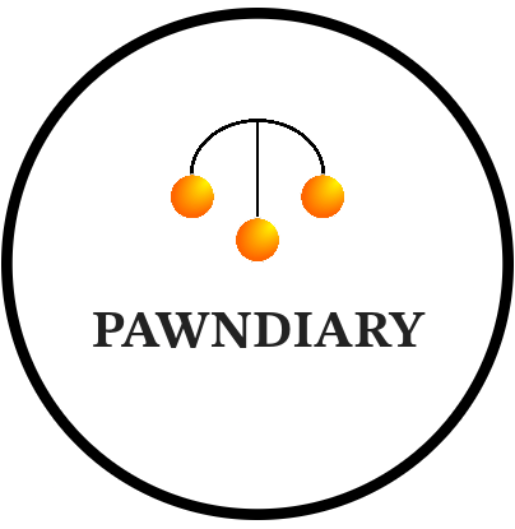
Pawn shops have been around for centuries, offering a unique way for individuals to access quick cash by using their personal belongings as collateral. These establishments play a crucial role in providing short-term loans and buying or selling various items, making them an intriguing option for those seeking financial assistance or looking for affordable deals. If you’re curious about how pawn shops work and whether they are the right fit for your needs, this beginner’s guide will walk you through the ins and outs of pawn shop transactions.
What are Pawn Shops?
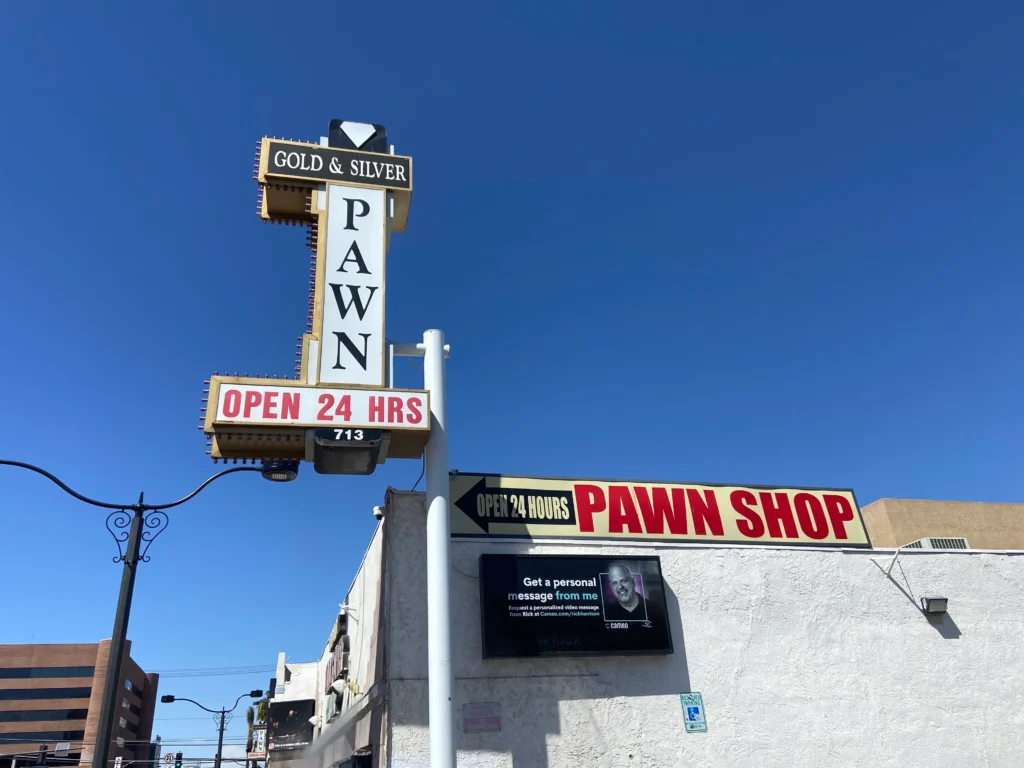
Image source: Google
Pawn Shops are a licensed business that provides secured loans to individuals in need of immediate funds. Customers can bring in valuable items such as jewelry, electronics, musical instruments, or tools, and use them as collateral for a loan. Pawnbrokers, the individuals running pawn shops, assess the items’ value and offer a loan amount based on their appraisal.
How do Pawn Shops operate?

Image source: Google
Accepting Items
When customers bring in items to a pawn shop, the pawnbroker evaluates their condition, age, and market value. The shop considers the item’s potential resale value in case the borrower is unable to repay the loan.
Appraisal Process
The pawnbroker uses their expertise and tools to determine the item’s authenticity and worth. This appraisal process ensures that both the borrower and the pawn shop agree on the item’s value.
Negotiating the Loan
After the appraisal, the pawnbroker offers the borrower a loan amount based on a percentage of the item’s appraised value. The customer can choose to accept or negotiate the offer.
Loan Terms and Interest Rates
Pawn shop loans typically have a short term, often around 30 days. Interest rates vary depending on the location and regulations, and borrowers should be aware of the terms and any additional fees associated with the loan.
Benefits of Using Pawn Shops

Image source: Google
Quick Cash Solution
Pawn shops offer a convenient and speedy way to obtain cash without going through credit checks or lengthy approval processes.
No Credit Checks
Unlike traditional banks, pawn shops do not consider the borrower’s credit history, making them an option for individuals with poor or no credit.
Confidential Transactions
Pawn shop transactions are private and do not affect the borrower’s credit score. If the borrower defaults on the loan, it does not impact their credit history.
Option to Reclaim Items
Borrowers have the option to repay the loan and reclaim their items, eliminating the risk of long-term debt.
Potential Risks and Considerations
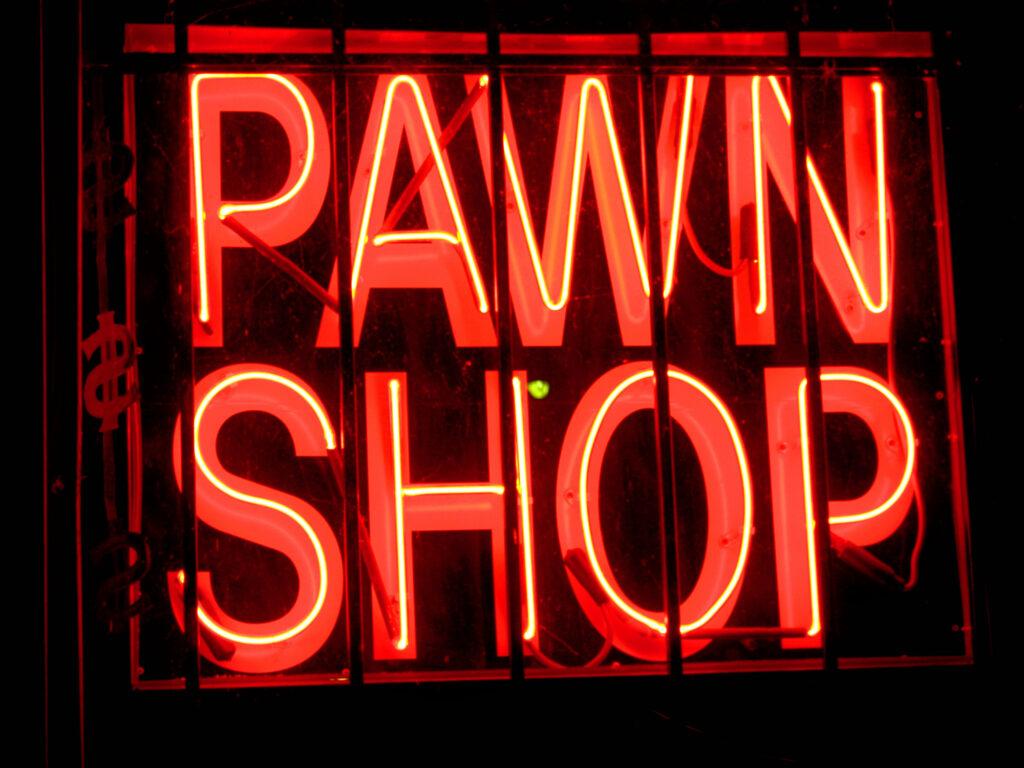
Image source: Google
Risk of Losing Items
If the borrower fails to repay the loan, the pawn shop retains ownership of the pledged item and may sell it to recover their investment.
High-Interest Rates
Pawn shop loans often come with higher interest rates compared to traditional loans, so borrowers should carefully consider the cost before agreeing to the terms.
Limited Regulation
Pawn shop regulations can vary significantly from one location to another, so borrowers should be cautious and choose reputable establishments.
Popular Items Pawned at Pawn Shops
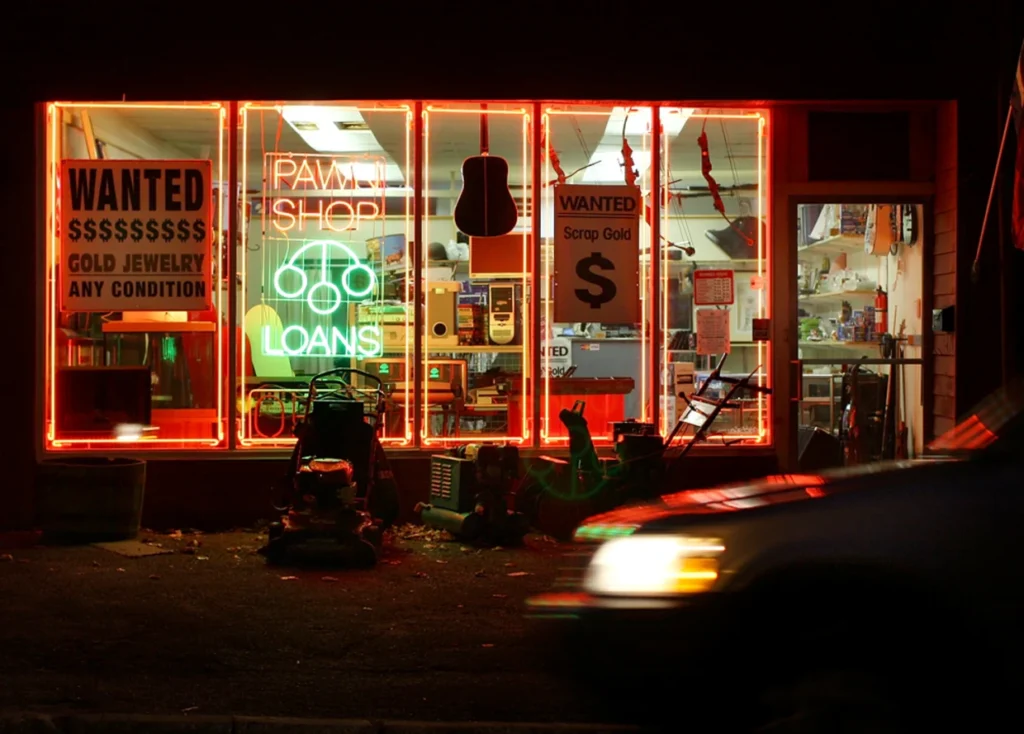
Image source: Google
Jewellery and Watches
Jewellery, including gold, silver, and precious stones, is a common item pawned at pawn shops due to its high value and easy marketability.
Electronics
Electronics like smartphones, laptops, and gaming consoles are frequently pawned for their desirability and resale potential.
Musical Instruments
Musical instruments, such as guitars and keyboards, are popular among musicians seeking quick cash.
Tools and Equipment
Tools and equipment used in various industries are often pawned by individuals in need of short-term funds.
The Pawn Shop Selling Process
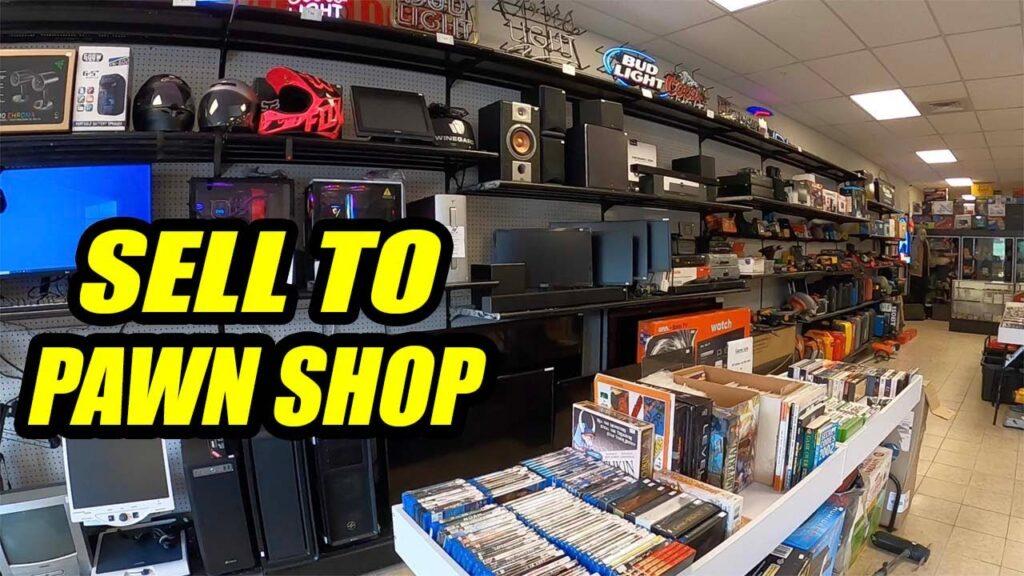
Image source: Google
The Seller’s Perspective
Individuals looking to
sell items to pawn shops can bring in their belongings for an appraisal. The pawnbroker will assess the item’s condition, market demand, and potential resale value. Based on this evaluation, the pawnbroker will make an offer to purchase the item from the seller. If the seller agrees to the offer, the transaction is completed, and the seller receives cash for the item.
The Shop’s Perspective
From the pawn shop’s standpoint, purchasing items from sellers is an essential aspect of their business. It allows them to acquire a diverse inventory of items that can be resold to customers. The pawnbroker must carefully evaluate the item’s worth to ensure they can make a profit when reselling it. The shop may also consider factors such as demand for certain items, seasonal trends, and market fluctuations.
Tips for Pawn Shop Transactions

Image source: Google
Research the Shop
Before engaging in any transaction with a pawn shop, it’s crucial to research the establishment. Look for reputable and well-established pawn shops with positive customer reviews. Check if the shop is licensed and adheres to local regulations.
Understand the Terms
When seeking a pawn shop loan, make sure to understand the loan terms, including the interest rate, loan duration, and any additional fees. Clarify the process for reclaiming your item if you choose to repay the loan.
Negotiate Wisely
If you feel the pawn shop’s loan offer or purchase price for your item is not fair, don’t hesitate to negotiate. Be respectful and present evidence to support your case, such as appraisals from other sources or market prices for similar items.
Be Prepared to Walk Away
If you cannot reach a satisfactory agreement with the pawn shop, be prepared to walk away. Avoid getting emotionally attached to the item, as it may hinder your ability to make an objective decision.
Alternatives to Pawn Shops
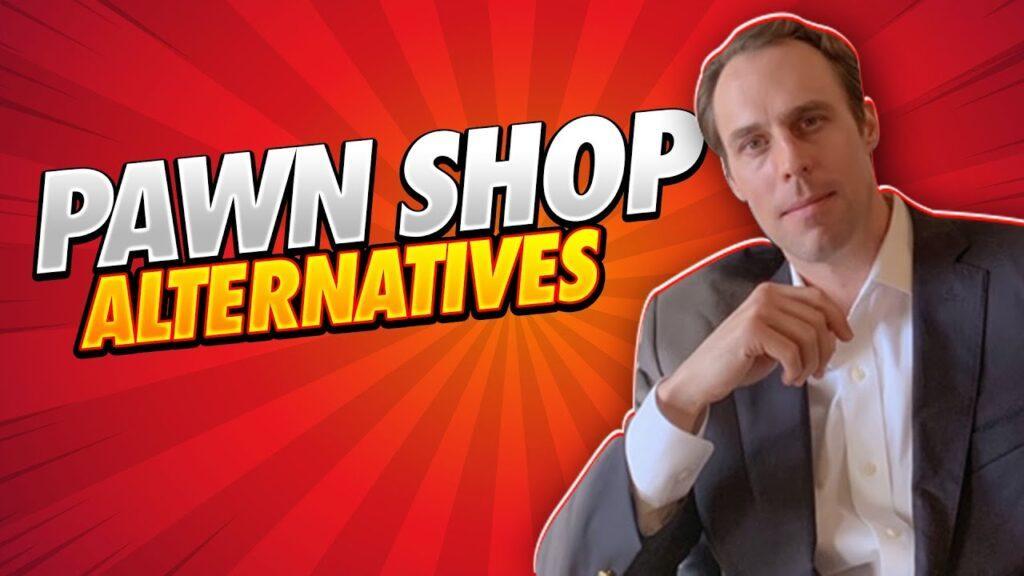
Image source: Google
Selling Online
If you prefer not to pawn or sell your items at a physical pawn shop, online platforms offer an alternative. Websites and apps allow you to sell your belongings directly to potential buyers, potentially fetching a higher price.
Consignment Stores
Consignment stores are another option for selling items. The store will sell your belongings on your behalf and take a percentage of the sale price as a commission.
Personal Loans
If you need cash but want to keep your belongings, consider exploring personal loan options from banks or credit unions. Personal loans are typically unsecured, meaning they don’t require collateral.
Conclusion
Pawn shops serve as valuable resources for individuals in need of quick cash or seeking unique deals on a variety of items. Understanding how pawn shops work and considering the potential risks and benefits can help you make informed decisions when using their services. Whether you’re pawning an item or purchasing something special, pawn shops continue to play a significant role in the world of commerce.
FAQs
Can I Pawn Broken Items?
Yes, pawn shops may accept broken items for collateral, but their value may be lower than fully functional items.
Can I Extend My Pawn Shop Loan Duration?
Many pawn shops offer extensions on loan durations for an additional fee, but it’s essential to clarify this before accepting the loan.
What Happens if I Don’t Repay the Pawn Shop Loan?
If you are unable to repay the loan, the pawn shop keeps ownership of the item and may sell it to recoup their loan amount.
Are Pawn Shop Prices Negotiable?
Yes, pawn shop prices are often negotiable, and it’s worth trying to get the best deal, especially if you’re selling an item.
Can I Pawn Firearms at a Pawn Shop?
Pawn shops in some regions may accept firearms, but regulations regarding this can vary significantly, so it’s best to check local laws and pawn shop policies.
Recommended Reading : A History of Pawn Shops
